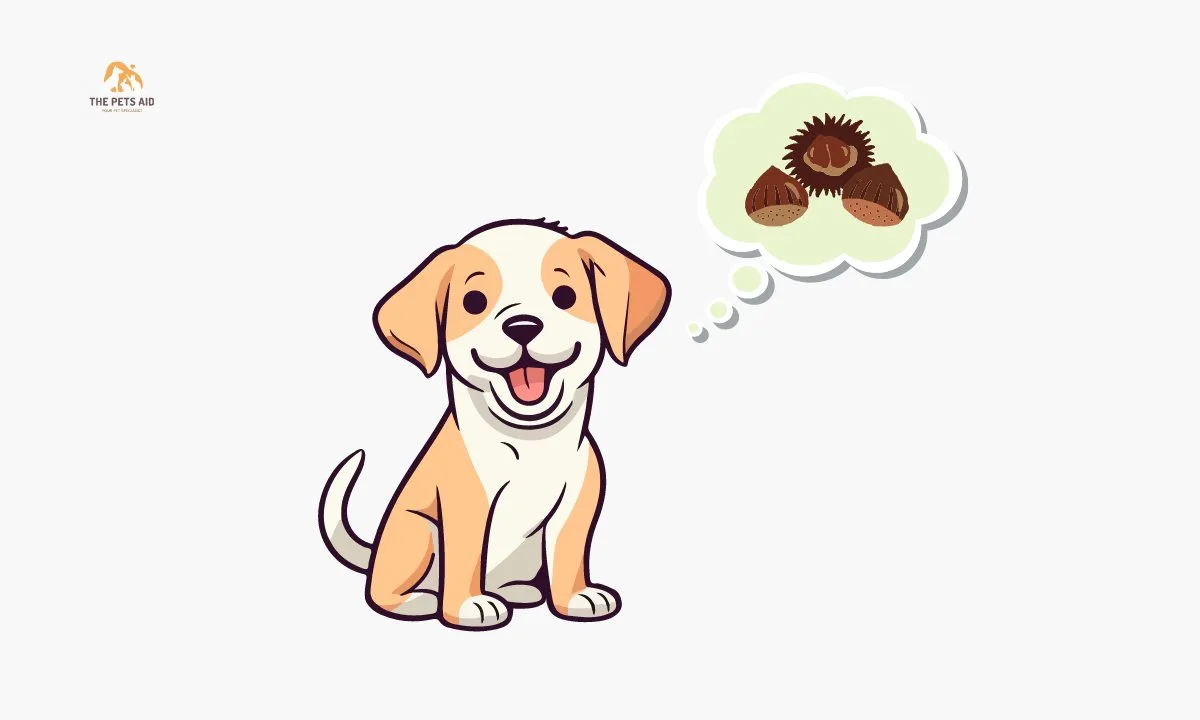As a dog owner, it’s natural to wonder about the suitability of various foods for your furry friend. Maybe you are confused about whether dogs can safely consume water chestnuts. These crunchy and mildly sweet tubers are a common ingredient in human cuisine, but does their presence on your plate mean they are safe for your dog? Can Dogs Eat Water Chestnuts?

Highlights:
- While water chestnuts are not toxic to dogs, their hard texture and high fiber content may cause digestive issues and pose a potential choking hazard.
- Prioritize your dog’s health by feeding them a balanced diet for their specific nutritional needs, avoiding unnecessary additions like water chestnuts.
- Opt for dog-friendly snacks like carrots, apples, blueberries, or sweet potatoes to provide your furry friend with tasty and safe alternatives.
- When in doubt about a specific food’s safety for your dog, seek advice from your veterinarian to ensure you make informed decisions regarding your pet’s diet.
- Being a responsible pet owner involves making mindful choices to promote your dog’s overall well-being, including their diet and nutrition.
Additional Resources:
To find out if dogs can consume water chestnuts and whether doing so is a healthy decision for them, let’s examine the specifics.
What Are Water Chestnuts?
Water chestnuts, often confused with chestnuts, are aquatic vegetables commonly used in Asian cuisine. These tubers belong to the sedge family and are popular for their crunchy texture and mild, slightly sweet flavor. Usually consumed in raw or cooked form, water chestnuts are low in calories and essential nutrients like potassium, fiber, and vitamins.
Can Dogs Eat Water Chestnuts?
No, dogs should not eat water chestnuts. They can cause stomach issues, maybe a choking hazard, and are not suitable for their diet. Stick to dog-friendly treats recommended by your vet.

While water chestnuts are generally safe for human consumption, the same cannot be said for our four-legged friends. While they are not toxic to dogs, feeding them water chestnuts may not be the best idea.
Here are a few reasons why
Feeding water chestnuts to dogs may cause digestive issues due to their high fiber content, pose a potential choking hazard with their hard texture, and add unnecessary calories to their diet, making it advisable to choose safer and more suitable snacks for your canine companion.
- Digestive Issues: Dogs have different digestive systems than humans, and introducing new foods can sometimes lead to digestive upset. Water chestnuts are fiber-rich, which can be difficult for some dogs to digest, potentially causing diarrhea or stomach discomfort.
- High Starch Content: Water chestnuts have a high starch content. While dogs can tolerate some starch in their diet, excessive amounts can lead to weight gain, inflammation, and other health issues.
- Potential Choking Hazard: Water chestnuts have a hard, crunchy texture, which may pose a choking hazard for dogs, especially if they try to swallow them whole.
- Unnecessary Calories: Dogs have specific dietary requirements, and their meals should primarily consist of balanced dog food formulated to meet their nutritional needs. Feeding them water chestnuts might add unnecessary calories to their diet and upset the balance.
Alternatives to Water Chestnuts for Dogs
If you’re looking for safe and healthy snacks to share with your dog, consider the following alternatives:
- Carrots: Crunchy and low in calories, carrots are an excellent source of vitamins and minerals for dogs.
- Apples: Remove the seeds and core, and apples become a tasty and nutritious treat for your furry friend.
- Blueberries: Packed with antioxidants, blueberries make a delicious and healthy dog snack.
- Sweet Potatoes: Cooked sweet potatoes are a rich source of fiber, vitamins, and minerals that dogs can enjoy in moderation.
FAQs
Can dogs eat water chestnuts?
While water chestnuts are not toxic to dogs, feeding them to your furry friend is not recommended. The high fiber and starch content may cause digestive issues, and the crunchy texture poses a potential choking hazard.
Are water chestnuts harmful to dogs?
Water chestnuts are not inherently harmful to dogs, but they may lead to digestive upset due to their high fiber content. Additionally, the crunchy texture could pose a choking risk, making them less suitable as a treat for your canine companion.
What should I do if my dog accidentally eats water chestnuts?
If your dog consumes a small amount of water chestnuts without showing any immediate adverse reactions, monitor them closely for any signs of digestive upset.
Can water chestnuts be included in homemade dog treats?
It’s generally advisable to avoid including water chestnuts in homemade dog treats. Opt for canine-friendly alternatives like carrots, apples (without seeds and core), or blueberries to ensure a safe and healthy snack for your dog.
Are there any benefits to feeding water chestnuts to dogs?
Water chestnuts contain some nutrients, but the potential risks, such as digestive issues and choking hazards, outweigh any minimal benefits. Sticking to a well-balanced dog food diet is best to meet your pet’s nutritional needs.
What are some safe alternatives to water chestnuts for dogs?
Safe alternatives for dog treats include carrots, apples (seedless and coreless), blueberries, and cooked sweet potatoes. These options combine taste and nutrition without the potential drawbacks associated with water chestnuts.
How should water chestnuts be prepared for dogs if I still want to give them some?
Even if you choose to give your dog water chestnuts, it’s crucial to prepare them in a dog-friendly way. Cooked and finely chopped or mashed water chestnuts may reduce the risk of choking and make them easier for your dog to digest.
Conclusion
While water chestnuts are not toxic to dogs, they are not ideal for your furry friend. It’s crucial to prioritize your dog’s well-being by sticking to a balanced and nutritionally complete diet formulated for their needs. If you need more clarification about whether a particular food is safe for your dog, consult with your veterinarian for personalized advice. Responsible pet ownership involves making informed choices that contribute to your dog’s overall health and happiness.
